Lecture
Abelard Peter
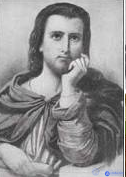
(1079 - 1142). French philosopher. One of the most influential medieval logicians and theologians. In about 1113, while teaching theology in Paris, Abelard fell in love with his pupil Heloise, whom he secretly married; he was convicted of heresy a few years later because of his nominalistic views of universals.
Anaxagoras
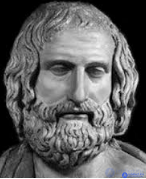
(Approx. 500 - 428 BC). A Greek pre-Socratic philosopher who is said to have made Athens the center of philosophy and was the teacher of Socrates, he rejected the four elements of Empedocles' theory and put it, instead of an infinite number of unique particles that make up all objects.
Anselm Senct
(1033 - 1109). Italian monk and theologian Scholastic who became Archbishop of Canterbury. St. Anselm founded scholasticism, integrated Aristotelian logic into theology, and believed that reason and revelation are compatible. He is best known for his influential ontological argument for the existence of God.
Thomas Aquinas and Saint Thomas
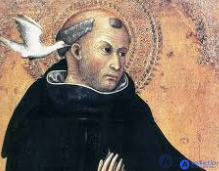
(1225 - 74). The greatest thinker of the Scholastic School. His ideas were, in 1879, made official in Catholic philosophy. He incorporated Greek ideas into Christianity, showing the thoughts of Aristotle to be consistent with church doctrine. In his system, reason and faith (revelation) form two separate, but harmonious spheres of which the truths complement rather than oppose each other. He presented influential philosophical evidence for the existence of God.
Aristotle
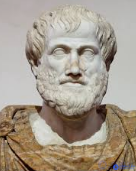
(384 - 322 BC). Greek philosopher, scientist, logician and student from many disciplines. Aristotle studied under Plato and became the teacher of Alexander the Great. In 335 he opened a lyceum, the main philosophical and scientific schools in Athens. Aristotle emphasized observation of nature and analyzed all things in terms of “four reasons.” In ethics, he emphasized that virtue is a middle ground between extremes and that the highest goal of man should be to use his intellect. Most of Aristotle's works were lost to Christian civilization from the fifth to twelfth century.
Aurelius Augustine
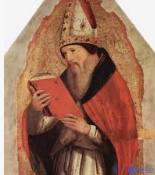
(354 - 430). Greatest of the Latin Church Fathers and possibly the most influential Christian thinker after Paul. St. Augustine emphasized man's need for grace. His denominations and the City of God were highly influential.
Averroes
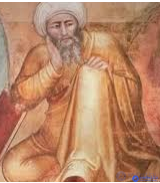
(1126 - 98). Hispanic-born Arab philosopher, lawyer, physician and whose detailed commentaries on Aristotle were influential for 300 years. He emphasized the compatibility of faith and reason, but believed philosophical knowledge to be obtained from reason. The church condemned his views.
Avicenna
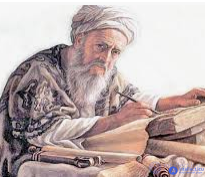
(980 - 1037). Islamic medieval philosopher was born in Persia. His Neoplatonic interpretation of Aristotle was greatly influenced by medieval philosophers, including St. Thomas Aquinas. Avicenna was also a physician, and his medical work has been important for nearly 500 years.
Bacon Sir Francis
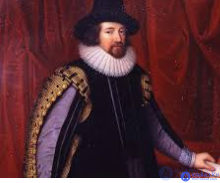
(1561 - 1626). English statesman, publicist and philosopher, one of the great predecessors of the tradition of British empiricism and belief in the importance of the scientific method. He emphasized the use of inductive reasoning in the pursuit of knowledge.
Boethius
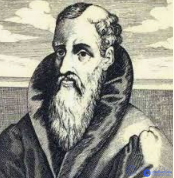
(Approx. 475 - 535). Roman statesman, philosopher and translator of Aristotle, whose Consolation of Philosophy (written in prison) became widespread in the Middle Ages, he showed the role of reason in the face of unhappiness and was a link between ancient philosophers and scholasticism.
Descartes Rene

(1596 - 1650). French philosopher and scientist, considered the father of modern philosophical research. Descartes tried to expand the mathematical method to all knowledge in his search for certainty. Discarding the medieval appeal to power, he began with "universal doubt", finding that the only thing that could not be doubted was his own thinking. The result was his famous "Cogito, hence the sum," or "I think, therefore, I exist."
Dewey John
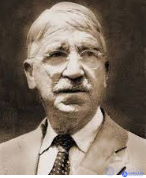
(1859 - 1952). Leading American philosopher, psychologist , theorist and educational. Dewey developed the views of Charles S. Pearce (1839 - 1914) and William James into his own version of pragmatism. He emphasized the importance of the request for knowledge and attacked the view that knowledge is passive.
Hegel Georg Wilhelm Friedrich
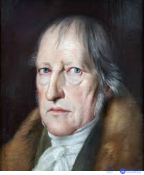
(1770 - 1831). German philosopher, the idealistic system of metaphysics was very influential, it was based on the concept of the world as a single organism develops according to its internal logic through a trio of stages called "thesis, antithesis, synthesis" and gradually comes to embody the cause. Hegel led the monarchy to the highest development of the state.
Heidegger Martin
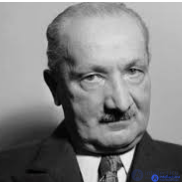
(1889 - 1976). German philosopher who studied with Husserl. Heidegger's own philosophy, who was influenced by Kierkegaard, emphasized the need to understand "being", especially in the unique ways that people act in and relate to the world around them.
Hobbes Thomas
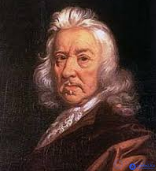
(1588 - 1679). The site https://intellect.icu says about it. English materialist and empiricist, one of the founders of modern political philosophy. In Leviathan, Hobbes argued that because humans are selfish by nature, a powerful absolute ruler is necessary. In a "social contract", people agree to give up many personal freedoms and accept such rules.
Yum David
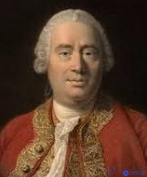
(1711 - 76). British empiricist whose arguments against proof of the existence of God are still influential. Hume believed that moral beliefs have no basis in reason, but solely on the basis of custom.
James William
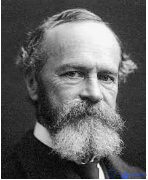
(1842 - 1910). American philosopher and psychologist, one of the founders of pragmatism, and one of the most influential thinkers of his era. James viewed consciousness as an active shaping of reality, defined truth as a "expedient" way of thinking, and ruled that ideas are tools to guide our future actions, not reproductions from our past experiences.
Kant Immanuel
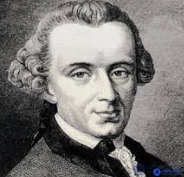
(1724 - 1804). German philosopher is arguably the most influential of modern times. He synthesized Leibniz's rationalism and Hume's skepticism in his "critical philosophy": that ideas do not correspond to the external world, and the world can be known only insofar as it corresponds to the mind's own structure. Kant argued that morality requires faith in God, freedom and immortality, although this can be proved neither scientifically nor metaphysically.
Kierkegaard Seren
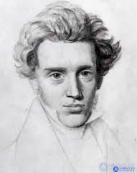
(1813 - 55). Danish philosopher, religious thinker and extremely influential founder of existentialism. Kierkegaard believed that "the truth of subjectivity", that religion is a separate issue, and the relationship of this person to God requires suffering.
Leibniz Gottfried Wilhelm
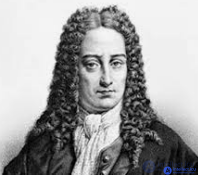
(1646 - 1716). German philosopher, diplomat and mathematician , one of the greatest minds of all time. Leibniz was the inventor (with Sir Isaac Newton) of calculus and the forefather of modern mathematical logic. He believed that the entire universe is one big system as an expression of God's plan.
Locke John
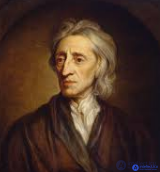
(1632 - 1704). A highly influential founder of British empiricism. Locke believed that all ideas come to mind from experience and that none are innate. He also ruled that power comes exclusively from the consent of the governed, believed to have a profound impact on the American Revolution and the writing of the US Constitution.
Machiavelli Niccolo
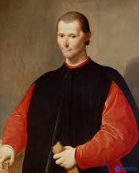
(1469 - 1527). Italian Renaissance statesman and political writer. In The Prince, one of the most influential political books of modern times, Machiavelli argues that any act of the ruler is intended to win and retain power is permissible. The term Machiavelli is used to refer to any political tactics that are cunning and power-oriented.
Maimonides
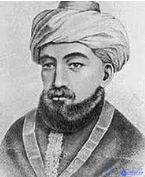
(1135 - 1204). Spanish-born medieval Jewish philosopher and thinker. Maimonides tried to synthesize Aristotelian and Jewish thought. His work has had a tremendous impact on Jewish and Christian thought.
Marx Karl
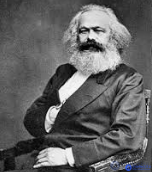
(1818 - 83). German revolutionary thinker, social philosopher and economist. His ideas, formulated with Engels, laid the foundation for nineteenth century socialism and twentieth century communism. Although Marx was initially influenced by Hegel, he soon abandoned Hegel's idealism in favor of materialism. His Communist Manifesto and Das Kapital are some of the most important works of the past 200 years.
Mill John Stewart
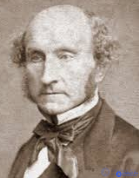
(1806 - 73). English empiricist philosopher, logician, economist and social reformer. His System of Logic describes the basic rules for all scientific reasoning. As a student of Jeremy Bentham, he elaborated on utilitarian ethics; in On Liberty, he presented a plea for the sanctity of individual rights against the authority of any government.
Moore GE (George Edward)
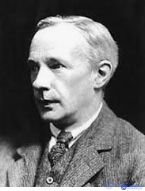
(1873 - 1958). British philosopher who stressed that "common sense " view of the reality of material objects. In ethics, Moore believed that kindness is a quality known directly to moral intuition, and that it is delusional to try to define it in terms of anything else.
More, Sir Thomas
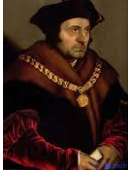
(1478 - 1535). Leading Renaissance humanist and statesman, Lord Chancellor of England. More was beheaded for refusing to accept the king as head of the Church. Influenced by Greek thinking, he believed in social reform and painted an ideal peace-loving state in his utopia.
Nietzsche Friedrich Wilhelm
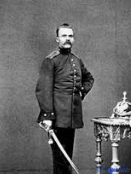
(1844 - 1900). German philosopher, philologist and poet. As a moralist, he rejected Christian values and championed "Superman" who would create new, life-affirming, heroic ethics of his "will to power."
Pascal Blaise
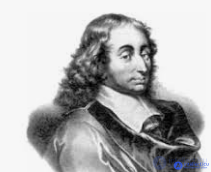
(1623 - 62). French philosopher, mathematician, scientist and theologian. His posthumous Pensees ("Thoughts") asserts that the cause itself is insufficient for the spiritual needs of man and cannot lead man to God, which can only be known through mystical understanding.
Plato
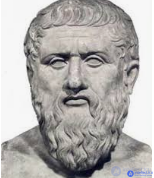
(Approx. 428 -. From 348 BC). The Athenian father of Western philosophy and student of Socrates, after whose death he traveled extensively. On his return to Athens, he founded the Academy, where he taught until he died. His works are in the form of a dialogue between Socrates and other Athenians. Many of Plato's views are set out in the republic, where the ideal state of the postulates of the philosopher kings, specially trained to the highest level of moral and mathematical knowledge. Plato's other works analyzed moral virtues, the nature of knowledge, and the immortality of the soul. His views on cosmology strongly influenced the next two thousand years of scientific thinking.
Plotinus
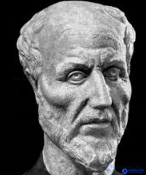
(205 - 270). Egyptian origin of the founder of Neoplatonism, who synthesized the ideas of Plato and other Greek philosophers. Plotinus believed all reality is caused by a series of outpourings (so-called emanations) from a divine source. Although not himself a Christian, he was a great influence on Christianity.
Rousseau Jean-Jacques
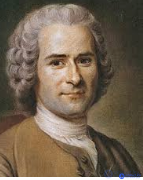
(1712 - 78). Swiss-French thinker, born in Geneva. Rousseau was extremely influential in political philosophy, educational theory, and the romantic movement. In The Social Contract (1762), he sees government as an expression of the people's "common will," or the choice of rational men for the common good. Rousseau emphasized the natural kindness of man.
Russell Bertrand
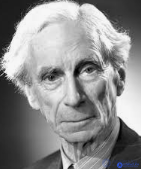
(1872 - 1970). English philosopher and logician as influential as an agnostic and pacifist. Early work with Alfred North Whitehead gave birth to modern logic. Russell changed his views many times, but always strove to create philosophy, especially epistemology, as a science .
Santayana George
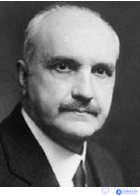
(1863 - 1952). Spanish born American philosopher and poet, student William James. Santayana tried to reconcile Platonism and materialism, studied how reason works, and found the "animal of faith", or impulse, as the basis of reason and faith.
Sartre Jean-Paul
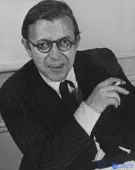
(1905 - 80). French philosopher, novelist and playwright, one of the founders of existentialism. Sartre was a Marxist for most of his life. He believed that man is “doomed to freedom” and are responsible for ensuring free choice.
Schopenhauer Arthur
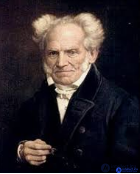
(1788 - 1860). German post-Kantian philosopher who believed that although an irrational will is the driving force in human affairs, it is doomed to not be satisfied. He believed that only art and contemplation can offer a way out of determinism and pessimism. Schopenhauer was heavily influenced by Nietzsche, Freud, Tolstoy, Proust and Thomas Mann.
Cattle John Duns
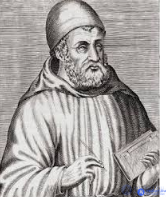
(Approx. 1266 - 1308). A Scottish-born Scholastic philosopher who tried to integrate Aristotelian ideas into Christian theology. Scott stressed that everything depends not only on the intellect of God, but on the divine will as well.
Smith Adam
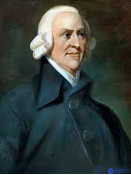
(1723 - 1790). Scottish philosopher and economist. He believes that if the government left its own devices on the market, the "invisible hand" will ensure that the result will benefit the population. Smith has had a tremendous impact on economists today.
Socrates
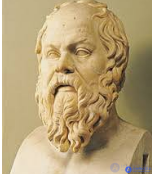
(464 - 399 BC). An Athenian philosopher who allegedly recorded none of his views, purportedly from his belief that writing distorts ideas. His main student, Plato, is the main source of knowledge about what is known about his life. Socrates questioned the Athenians about his moral, political and religious beliefs, as shown in the dialogues of Plato, his interrogation of a technique, called dialectics, had a great influence on Western philosophy. Socrates is said to have said that "the life of the unexplored is not worth living." In 399 BC, he was brought to trial on charges of youth corruption and religious heresy. Sentenced to death, he drank poison.
Spinoza Benedict (Baruch)
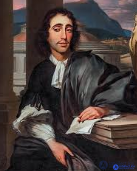
(1623 - 77). A Dutch-born philosopher expelled from the Amsterdam Jewish community for heresy in 1656, he was attacked by Christian theologians 14 years later. In ethics, Spinoza presents his views in a mathematical system of deductive reasoning. A proponent of monism, he held, in contrast to Descartes, that mind and body are aspects of a single substance, which he called God or nature.
Voltaire (Francois Marie Arouet)
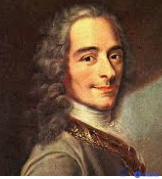
(1694 - 1778). French philosopher, essayist, historian, one of the greatest thinkers of the Enlightenment . A deist who was anti-Christian, Voltaire widely promoted tolerance for liberal ideas, and called for positive social action. His novel Cyandide is a parody of Leibniz's optimism.
Whitehead Alfred North
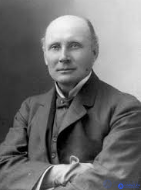
(1861 - 1947). British philosopher and mathematician who worked with Bertrand Russell. Whitehead tried to integrate twentieth century physics into the metaphysics of nature.
William of Ockama (Okama)
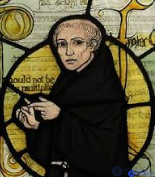
(Approx. 1285 -. From 1349). Franciscan monk and important English theologian and philosopher. In his nominalism, he opposed much of the thought of Thomas Aquinas and medieval Aristotelianism, he also rejected the power of the pope in the secular realm.
Comments
To leave a comment
philosophiya
Terms: philosophiya